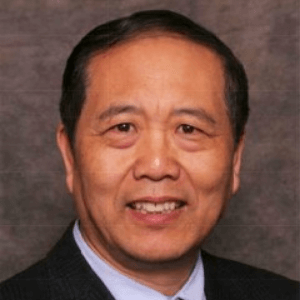Title : Synthetic mesh reconstruction of extensor mechanism ruptures following total knee arthroplasty: Surgical technique and clinical outcomes
Abstract:
Background: Quadriceps or patellar tendon rupture following Total Knee Arthroplasty (TKA) is a rare but potentially devastating complication. Surgical management remains challenging, particularly for patients with chronic tears or tears with large residual gaps. The purpose of our study is to present our surgical technique for extensor mechanism reconstruction with synthetic polypropylene mesh and evaluate postoperative patient outcomes and complications.
Methods: This study was a retrospective review of 25 patients with extensor mechanism ruptures following TKA (12 quadriceps tendon, 13 patellar tendon) who were repaired with synthetic mesh reconstruction at our institution from 2012-2021. Pre- and postoperative knee range of motion, strength, Knee Society functional knee scores, ability to walk, and patient satisfaction were recorded to evaluate patient outcomes, and complications such as infection and failure rates were also assessed.
Results: At a mean follow-up of 51.8 months (range, 12 to 99 months), patients showed significant improvement in average Knee Society functional knee scores (31.6-86.3, p<0.001), extension lag (43.5°-5°, p<0.001), and extension strength (2.8/5-4.5/5, p<0.001). 20 (80%) of 25 patients reported good or excellent levels of satisfaction postoperatively, with these patients achieving knee range of motion from 0°-120°. All patients required assistive devices for ambulation preoperatively, but 22/25 (88%) patients no longer required an assistive device at their most recent postoperative visit. Three patients experienced postoperative infection and required revision surgery, while two patients experienced re-rupture of the construct following postoperative falls.
Conclusions: Management of extensor mechanism ruptures following TKA remains a clinical challenge, though synthetic mesh reconstruction with our surgical technique provided excellent postoperative gains of function with low overall complication rates. This is an effective option for management of extensor mechanism ruptures after TKA, particularly in patients with large tears which are not amenable to primary repair.
What will audience learn from your presentation?
- The audiences should realize the extensor mechanism failure following total knee arthroplasty (TKA) is a rare but devastating complication. Surgical management remains challenging for those with chronic ruptures or large residual gaps.
- We would like the audiences to understand our surgical technique with synthetic mesh reconstruction for management of extensor mechanism ruptures after TKA particularly in patients with large tears which are not amenable to primary repair.
- This study highlights that synthetic mesh is a very promising material to augment tendon repair during extensor mechanism reconstruction, as it maintains excellent tensile strength, has a low chance of tissue reaction, and a low disease transmission risk compared to allograft
- Along with the clinical benefit of mesh reconstruction, there is also a significant financial benefit as compared to allograft. Using synthetic materials over allograft may save a substantial institutional cost.




